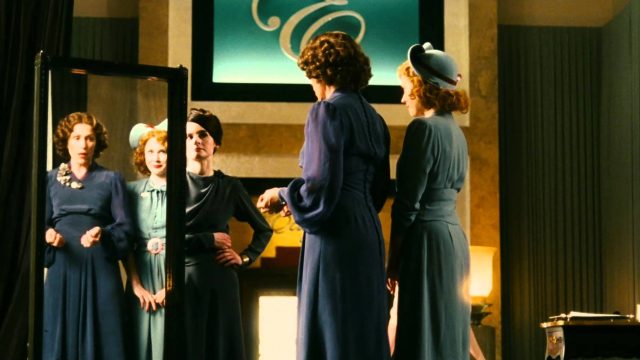Miss Pettigrew Lives for a Day is one of my go-to films. No matter how I’m feeling, I’m always at least a little in the mood to watch it.
All-in-one-day stories tend to pin their hopes on plot. Jack Bauer must do x before the terrorists do y. We must live through the night of the living dead. The ticking clock usually gives, and most usually be supported by, urgency. Immediate “musts.” Miss Pettigrew Lives for a Day, on the other hand, deals with the immediate only as a series of madcap situations and slapdash solutions: one man must be gotten out of the flat before the other arrives, suitable clothes must be found, a role must be secured. It’s a comedy, but it’s also an old-fashioned women’s picture, skilled at finding the significance in domestic choices. At the start of the day, no one knows going into it that they’ll have to decide whom to love and how to face a coming war, but they do, and the choices they make matter.
There’s as much pleasant, frothy delight as you can imagine in a movie that features Amy Adams in a bubble bath. This is her most delicious role—sensual and effervescent, a woman electrically connected to enjoyments she knows to be precarious—and she’s well-paired with an especially gorgeous Lee Pace. But the heart of the film isn’t with them, adorable though they may be. They’re kids. Adams’s Delysia is American, even, destined for the ability to shrug.
The most lasting part of the film is Frances McDormand’s funny, vulnerable, and deeply felt performance as Guinevere Pettigrew, a woman who may be out of options, a woman who is told she’s out of choices and out of time. She understands that there’s no safety, and that alone gives her actions more weight. It’s what connects her to Joe (Ciaran Hinds), who has seen war and peace, lingerie and socks, youth and age. The fairy tale they get here is a beautiful one.

